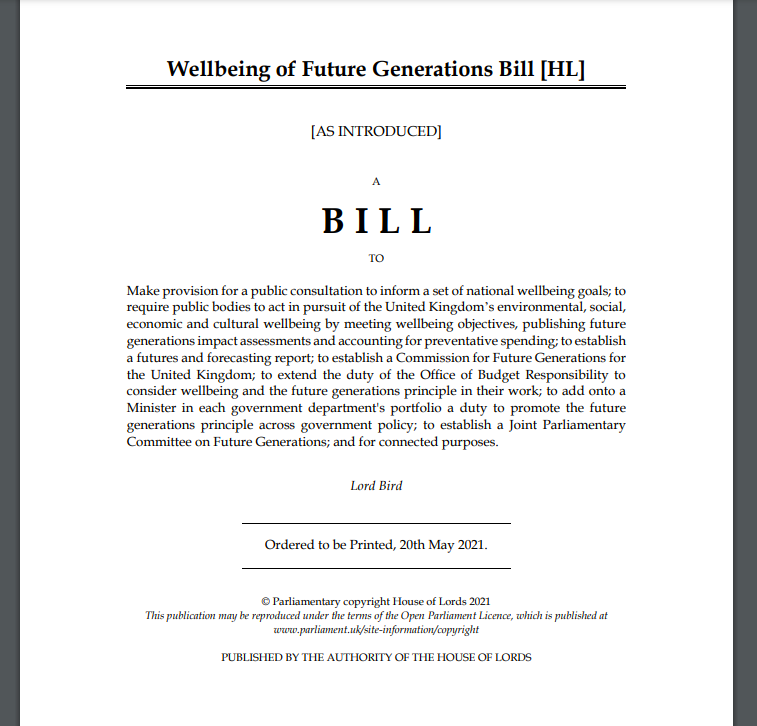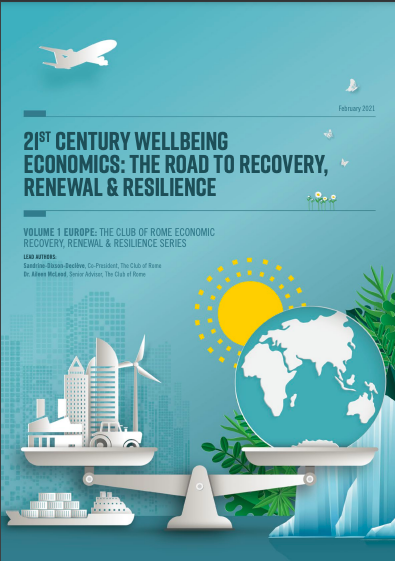On the 4th of February, the Wellbeing of Future Generations Bill draft will finish the third reading round in the House of Lords, the upper body of the United Kingdom’s parliament.
If passed, the bill will allow for a public consultation, or “national conversation” on what wellbeing means for the United Kingdom in order to design a set of national wellbeing goals.
The bill also tackles the issue of short-termism and aims to strengthen the ability of governing bodies to account for future generations’ needs and wellbeing. It also coins the ‘future generations principle’: “seek{ing} to ensure that the needs of the present are met without compromising the ability of future generations to meet their own needs.”
Additionally, the bill would build upon the examples of Wales and Finland by creating a Commission for Future Generations for the United Kingdom, responsible for ensuring the alignment of policymaking with the interests of future generations and advised by a citizens panel, and by forming a Joint Parliamentary Committee on Future Generations, charged with government oversight.
It would help to structure the United Kingdom’s institutions to adopt long-term thinking, beyond the short-term political cycles.
This reading comes a few weeks after the EU recognised the need to shift towards a beyond-GDP, wellbeing economic system and policy making – are we spotting a pattern?
While no country currently follows a path that would enable them to sufficiently meet the criteria for fulfilling the needs of all their inhabitants within the planetary boundaries, some nations are beginning to move towards wellbeing. The Earth4All initiative will provide the tools to support countries in starting their journeys.
Read more about wellbeing economics: 21st Century Wellbeing Economics: The Road to Recovery, Renewal & Resilience





